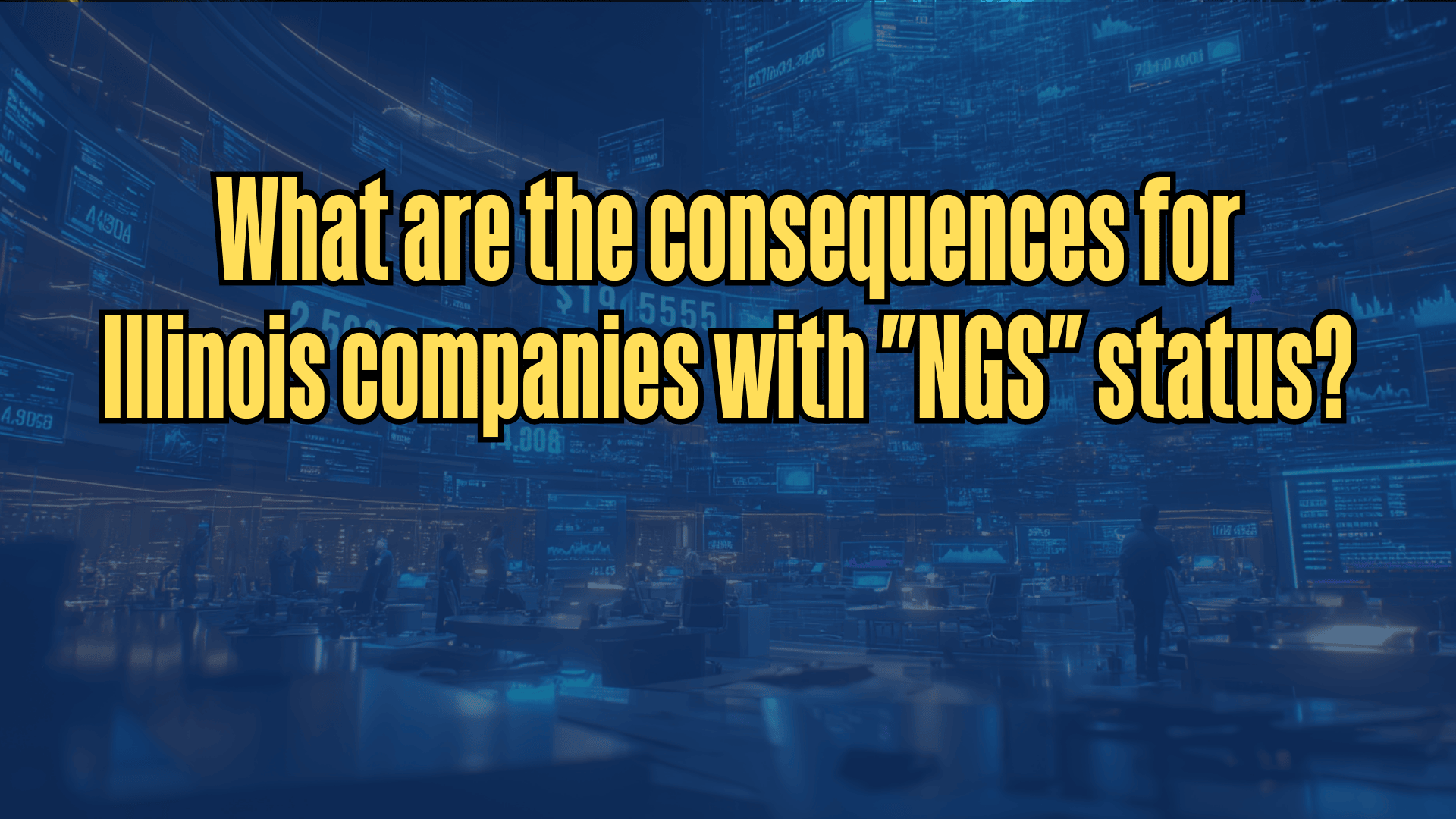For Illinois-based companies, encountering a "Not Good Standing (NGS)" status is a significant red flag that demands immediate attention and a clear understanding of its implications.
At Cobalt Intelligence, we’re dedicated to empowering alternative funders like you with real-time, primary source business verification. Let’s dissect what an "NGS" status in Illinois truly signifies and why it should shape your lending strategy.
The Core of "Not Good Standing (NGS)" in Illinois: A Compliance Breakdown
When an Illinois company is marked as "Not Good Standing (NGS)," it indicates a fundamental lapse in its regulatory compliance. Specifically, this means the business is currently operational but has failed to meet certain state requirements. These unmet obligations typically include crucial administrative duties that underscore an entity's legal legitimacy and operational diligence.
- Failure to File Annual Reports: Many states, including Illinois, require businesses to submit annual reports detailing their structure, registered agent, and other key information. Missing these deadlines is a primary cause of an NGS status.
- Unpaid Fees: Non-payment of state-mandated fees, such as annual registration fees or penalties, directly contributes to a business falling out of good standing. This financial oversight can accumulate, further complicating reinstatement.
- Lapse in Registered Agent Information: Maintaining an active and accurate registered agent is paramount for receiving official correspondence. An outdated or absent registered agent can trigger an NGS status, hindering the state's ability to communicate vital updates or legal notices.
Critical Consequences: Why NGS Status Demands Your Attention
The "Not Good Standing (NGS)" status for an Illinois company isn't just an administrative footnote; it carries several severe consequences that directly impact a business's operational viability and, crucially, its creditworthiness in your eyes.
1. Regulatory Penalties and the Looming Threat of Dissolution
An Illinois company with an NGS status is unequivocally at risk of further penalties or, more drastically, administrative dissolution if these issues are not rectified. This is a critical point for any lender.
- Escalating Fines and Fees: The initial non-compliance often leads to accumulating penalties, increasing the financial burden on the business and further straining its resources. These additional costs can erode profit margins and divert funds that might otherwise be used for loan repayment.
- Loss of Legal Privileges: An NGS status can strip a company of its ability to conduct legal business operations, such as entering into new contracts, filing lawsuits, or even defending itself in court. This severely curtails its operational capacity and market engagement, making it a liability rather than an asset.
- Administrative Dissolution: The ultimate consequence of prolonged non-compliance is administrative dissolution by the state. This means the entity ceases to legally exist, rendering any existing contracts or loan agreements with it highly problematic and potentially unenforceable. From a lending perspective, this transforms a recoverable asset into a potential write-off.
2. Signalling Deeper Financial and Operational Instability
The presence of an NGS status often suggests potential financial or operational issues within the company. This isn’t merely about a forgotten form; it's a symptom that warrants deeper investigation.
- Cash Flow and Liquidity Concerns: The inability to pay state fees or manage filing deadlines can be indicative of broader financial distress. A business struggling with basic administrative costs might also be facing significant cash flow problems, making it a high-risk borrower.
- Management Inefficiency or Negligence: Consistent failure to meet regulatory requirements points to poor internal controls, inefficient management, or a lack of attention to critical administrative duties. Such operational shortcomings can undermine the overall stability and long-term prospects of the business.
- Diminished Reputational Standing: In an increasingly transparent business environment, an NGS status can damage a company’s reputation among partners, customers, and other stakeholders. This can lead to a loss of business opportunities and further exacerbate financial woes, creating a downward spiral that impacts its ability to service debt.
3. Severely Impaired Ability to Secure and Service Debt
Perhaps most critically for alternative lenders, an NGS status directly affects the business's ability to meet loan obligations. Lenders are explicitly advised to approach NGS businesses with caution.
- Increased Perceived Risk: For any discerning lender, an NGS status immediately elevates the perceived risk profile of the borrower. This translates into higher interest rates, more stringent collateral requirements, or, more often, an outright denial of financing. Why extend capital to an entity whose legal foundation is shaky?
- Ineligibility for Certain Lending Products: Many institutional lenders and alternative financing platforms have automated underwriting criteria that will automatically flag or decline applications from businesses not in good standing. This effectively locks the business out of crucial capital avenues needed for growth or even survival.
- Legal Uncertainty for Collateral: If the business is not in good standing, there can be legal complications regarding its assets and the enforceability of liens. This uncertainty can undermine the security of your loan, making recovery challenging in the event of default. The ability to verify UCC filings, as offered by Cobalt Intelligence, becomes even more critical in such scenarios.
Your Strategic Imperative: Leveraging Real-Time Verification
For alternative business lenders and institutional executives, understanding and quickly identifying an Illinois company’s NGS status is paramount. This is where cutting-edge technology, like Cobalt Intelligence’s Secretary of State (SOS) API, becomes an indispensable tool.
Our API provides real-time access to business entity details directly from state databases, ensuring you're always working with the most current and accurate information available.
- Automated Fraud Detection: By instantly verifying business registration status, our API helps you identify unregistered, expired, or inactive businesses, which are often red flags for fraudulent applications. This proactive approach helps curtail the risk of approving fraudulent credit applications.
- Streamlined Underwriting and Onboarding: Integrate our SOS API into your existing systems to automate the verification process, transforming manual, hours-long tasks into instantaneous data retrieval. This efficiency not only frees up your team's bandwidth but also improves the customer experience by reducing friction in the loan application process.
- Comprehensive Risk Assessment: Beyond basic status, Cobalt Intelligence offers a suite of API-driven services including TIN verification, UCC filing data access, and contractor license verification. These layers of verification provide a holistic view of a business's legitimacy and financial obligations, enabling more informed credit decisions and robust risk analysis.
In the fast-paced world of alternative finance, speed, accuracy, and compliance are non-negotiable. Don't let an "NGS" status catch you off guard. Empower your lending operations with Cobalt Intelligence’s real-time data and AI automation, ensuring every decision is backed by the most reliable information.












.png)